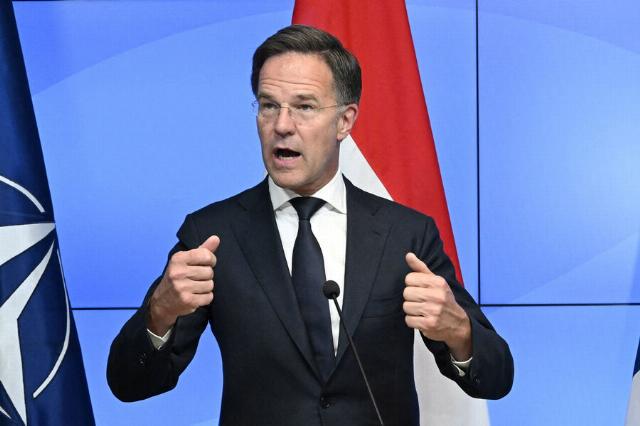NATO Secretary General Rutte: the new body of the alliance for Ukraine will help change on the battlefield
The NATO Secretary General visited the headquarters of the North Atlantic Alliance and the new NATO command in Germany, created to promote security and training of personnel in Ukraine. Why the alliance is creating a separate body for this, how the West reacted to Zelensky's "victory plan" and how the "Ukrainian theft" influenced the decisions, the military observer of the Newspaper understood.En" Mikhail Khodarenok.
NATO Secretary General Mark Rutte, together with General Cavoli, visited Wiesbaden, Germany (the capital of the federal state of Hesse), where the new NATO command for security Assistance and training of AFU personnel (NSATU, New Security Assistanceand Training Ukraine) is being deployed.
There, Rutte, at a meeting with German Defense Minister Boris Pistorius, noted how important the work on training 700 military personnel who will be stationed in Wiesbaden and in logistics hubs on the eastern flank of NATO is. He said the new command would make a real difference to Ukraine on the battlefield and "for our own security."
NSATU will coordinate the training of personnel and the supply of weapons, military and special equipment for Ukraine by NATO allies and partners, including artillery, ammunition and air defense equipment, and will also help the Armed Forces of Ukraine "prepare for the future," the alliance noted.
Now the most important issue for Ukraine is the volume and timing of deliveries of weapons, military and special equipment. Such issues will not be resolved in Wiesbaden. Decisions of this level have been made and will continue to be made in the White House and the Pentagon. And it is quite obvious that they are now put on pause. This does not mean that the supply of weapons and ammunition for the Armed Forces has been stopped. They will continue in volumes designed to prevent the collapse of the Ukrainian front. But fundamentally, nothing significant will happen before November 5th.
The express visit of Ukrainian President Vladimir Zelensky to Europe has not changed anything in this regard. Moreover, at this stage, the transfer of weapons and ammunition to the Armed Forces of Ukraine has even been somewhat reduced. Vladimir Zelensky's "victory plan" in the West was called "vague", his desire to urgently join NATO and the European Union was left without serious comments.
As for the "victory plan", then
In other words, the head of Ukraine was put in his place during this visit and made it clear that it was not for him to make fundamental decisions, he was not a world-class player. Vladimir Zelensky has recently greatly overestimated his role in history, his assessments of the situation have begun to go beyond reality, and the decisions of the president of Ukraine increasingly look inadequate and are in obvious contradiction with the "general line of the guiding and guiding force." Which was strictly indicated to him.
Most likely, the new NATO command for security assistance and training of AFU personnel in Ukraine (NSATU, New Security Assistance and Training Ukraine) is being created solely to combat Ukrainian theft and misuse of funds from the United States and NATO.
And this has become an epidemic in Ukraine. Naturally, it is completely out of hand to say this in plain text to the political and military leadership of NATO (after all, according to Western estimates, a battle of light and darkness, a battle of good and evil, democracy and autocracy is taking place in Ukraine), therefore, the goals of creating a new command are outlined in a relatively "high style" - coordination, security, training. It is quite difficult to find other reasons for the deployment of a new body at the end of the third year of the armed struggle.
The opinion of the author may not coincide with the position of the editorial board.
Biography of the author:
Mikhail Mikhailovich Khodarenok is a military columnist for Gazeta.Ru", retired colonel.
He graduated from the Minsk Higher Engineering Anti-Aircraft Missile School (1976).
Military Air Defense Command Academy (1986).
Commander of the S-75 anti-aircraft missile division (1980-1983).
Deputy commander of the anti-aircraft missile regiment (1986-1988).
Senior Officer of the General Staff of the Air Defense Forces (1988-1992).
Officer of the Main Operational Directorate of the General Staff (1992-2000).
Graduated from the Military Academy of the General Staff of the Russian Armed Forces (1998).
Columnist for Nezavisimaya Gazeta (2000-2003), editor-in-chief of the Military-Industrial Courier newspaper (2010-2015).
Mikhail Khodarenok

